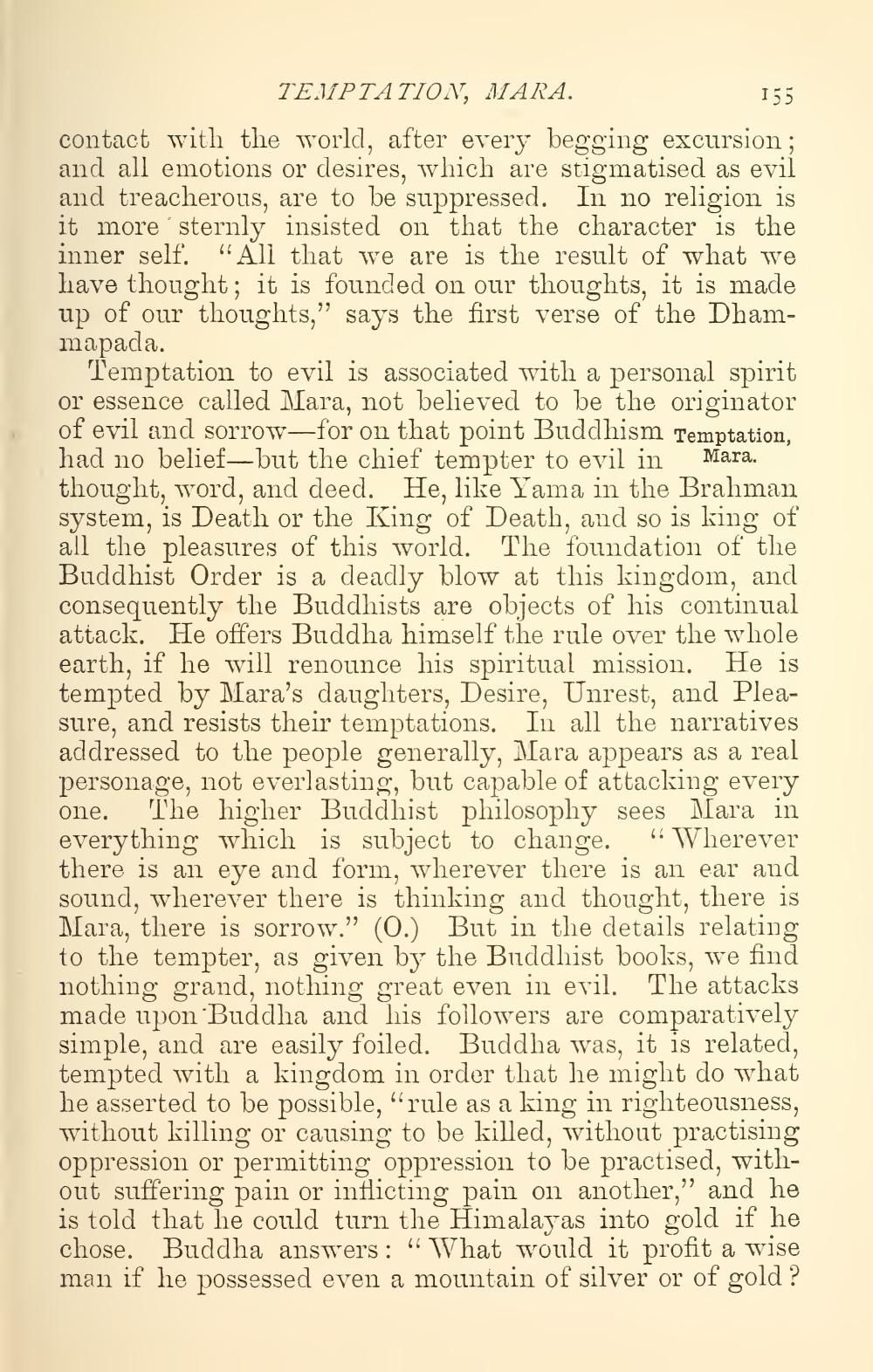________________
TEMPTATION, MARA.
155 contact with the world, after every begging excursion; and all emotions or desires, which are stigmatised as evil and treacherous, are to be suppressed. In no religion is it more sternly insisted on that the character is the inner self. “All that we are is the result of what we have thought; it is founded on our thoughts, it is made up of our thoughts," says the first verse of the Dhammapada.
Temptation to evil is associated with a personal spirit or essence called Mara, not believed to be the originator of evil and sorrow for on that point Buddhism Temptation, had no belief- but the chief tempter to evil in Mara. thought, word, and deed. He, like Yama in the Brahman system, is Death or the King of Death, and so is king of all the pleasures of this world. The foundation of the Buddhist Order is a deadly blow at this kingdom, and consequently the Buddhists are objects of his continual attack. He offers Buddha himself the rule over the whole earth, if he will renounce his spiritual mission. He is tempted by Mara's daughters, Desire, Unrest, and Pleasure, and resists their temptations. In all the narratives addressed to the people generally, Mara appears as a real personage, not everlasting, but capable of attacking every one. The higher Buddhist philosophy sees Mara in everything which is subject to change. “Wherever there is an eye and form, wherever there is an ear and sound, wherever there is thinking and thought, there is Mara, there is sorrow.” (O.) But in the details relating to the tempter, as given by the Buddhist books, we find nothing grand, nothing great even in evil. The attacks made upon Buddha and his followers are comparatively simple, and are easily foiled. Buddha was, it is related, tempted with a kingdom in order that he might do what he asserted to be possible, "rule as a king in righteousness, without killing or causing to be killed, without practising oppression or permitting oppression to be practised, without suffering pain or inflicting pain on another," and he is told that he could turn the Himalayas into gold if he chose. Buddha answers: “What would it profit a wise man if he possessed even a mountain of silver or of gold ?




